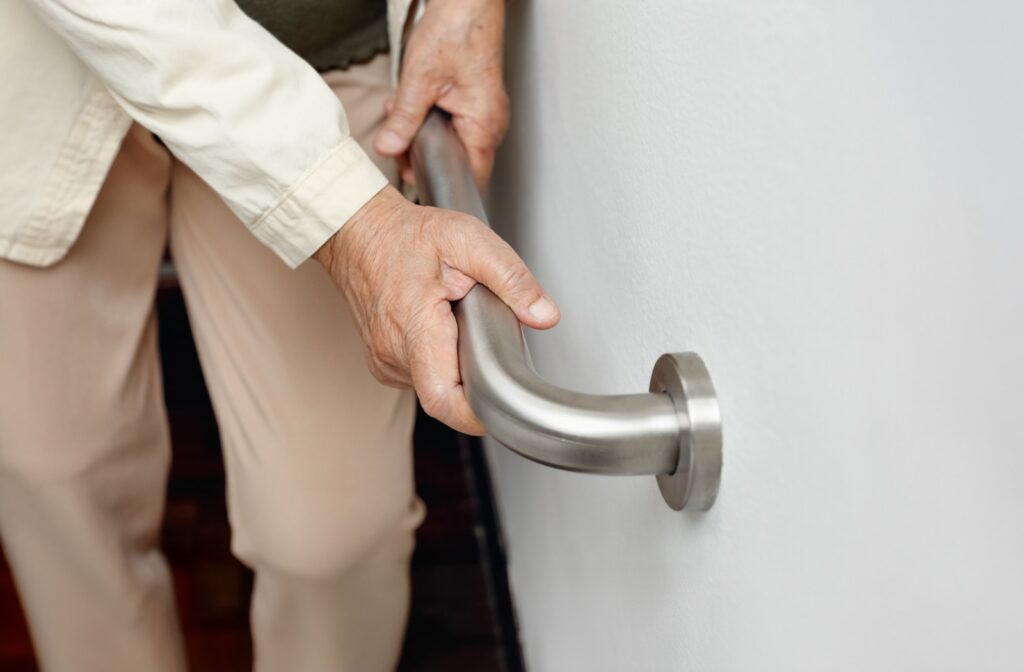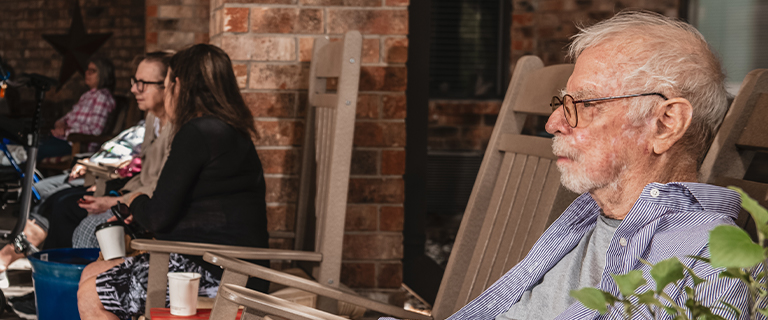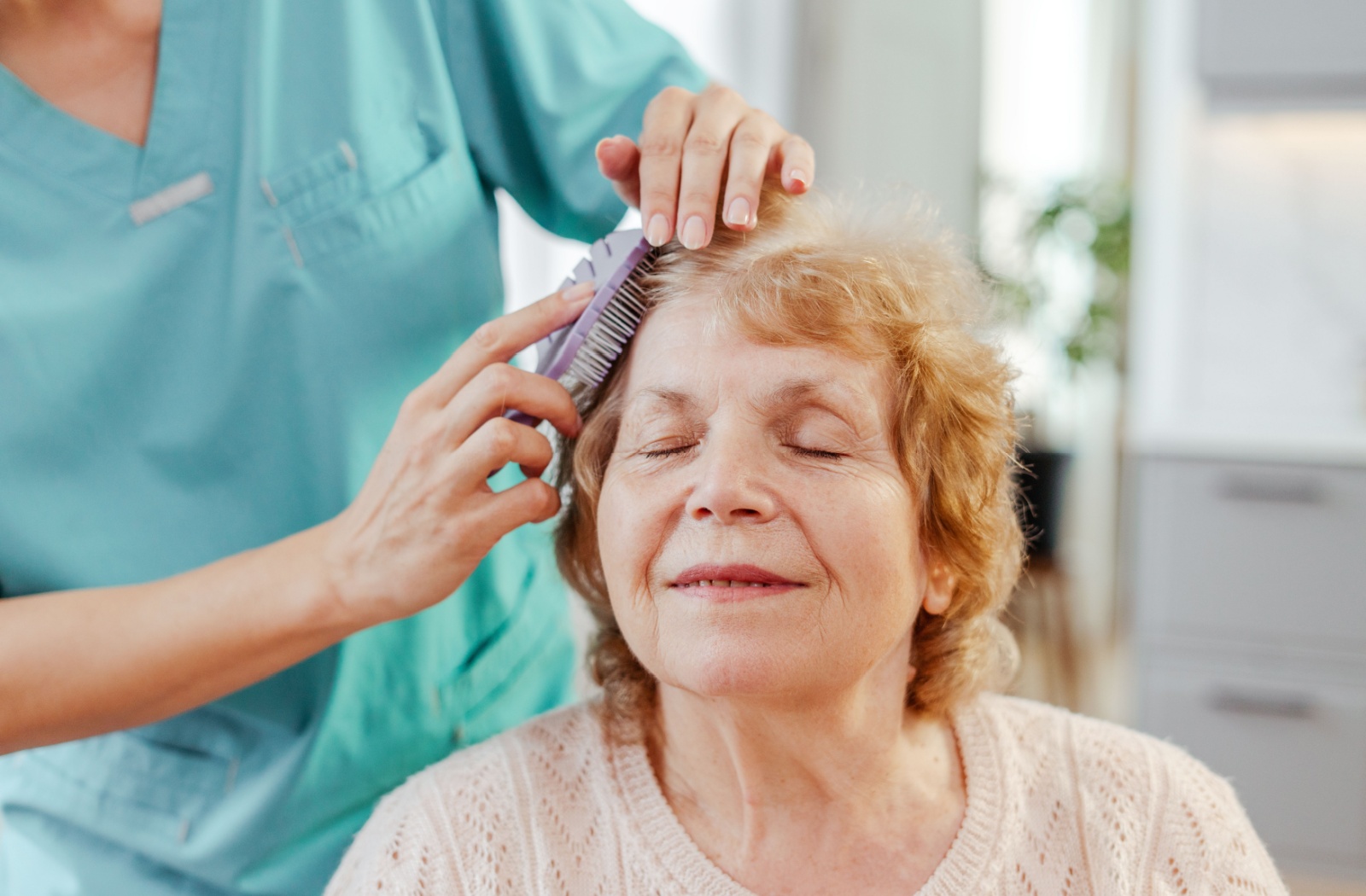Supporting an aging parent or loved one with personal hygiene is a delicate but vital responsibility. Personal care can directly affect their physical health, emotional well-being, and sense of self-respect. If you’ve been feeling overwhelmed or unsure about making this process comfortable and respectful, rest assured, you’re not alone.
Whether it’s assistance with bathing, brushing hair, or nail care, offering gentle support can help your loved one feel their best. If you ever need extra guidance or professional care, the team at Parsons House Austin is always here to help with compassionate, personalized support.
Why Personal Hygiene Is Crucial for Senior Health
Proper hygiene goes beyond appearances. It’s a critical aspect of maintaining overall health. Seniors are more vulnerable to issues like:
- Skin infections
- Dental problems
- Complications from weakened immune systems
Regular grooming prevents these health risks and boosts their confidence and well-being. Feeling clean and well-groomed helps seniors maintain their dignity, increases their eagerness to socialize, and fosters a greater sense of connection with others.
Creating a Safe & Comfortable Hygiene Routine
Every person has specific needs, preferences, and physical limitations. Crafting a hygiene routine tailored to your loved one gives them a sense of comfort and safety. Here’s how you can start:
- Understand their preferences: Have an open, respectful conversation about their grooming preferences. Learn when they feel comfortable bathing or grooming, and adjust the routine accordingly.
- Stay consistent, but flexible: A predictable routine can provide comfort, but be mindful of their health and mood changes.
- Set a calming environment: Use warm lighting, maintain a pleasant room temperature, and perhaps play some soothing music to create a spa-like atmosphere that reduces stress.
By personalizing their routine, you show respect for their individuality, making the experience more comfortable and reassuring.
Hygiene Tips for Specific Tasks
Tackling daily hygiene tasks with care and attention can help give your loved one physical and emotional comfort. Below are suggestions for common grooming activities seniors may need assistance with.
Bathing & Dressing
Encourage independence whenever possible. Assist only when needed and respect their personal space.
- Use long-handled brushes or shower chairs to make bathing safer.
- Help with dressing discreetly, using resources like adaptive clothing that’s easy to wear.
Oral Hygiene
Oral care helps prevent gum disease, cavities, and even respiratory infections.
- Offer tools like electric toothbrushes or floss holders to make oral hygiene easier.
- Make sure dentures are cleaned daily and soaked overnight.
- Encourage routine dental checkups to catch issues early.
Hair & Nail Care
Hair care isn’t just about cleanliness. It also impacts a senior’s confidence.
- Use tear-free shampoo and style hair in manageable, low-maintenance ways.
- Electric razors reduce the risk of cuts when shaving.
For nail care, use proper clippers, especially for those with diabetes or circulation issues. Consider seeking professional assistance if needed.
Hand & Skin Care
Regular handwashing and moisturizing can prevent dryness and infections. Encourage gentle, regular cleaning and use moisturizing products to maintain skin health.
Keeping Hygiene Safe & Stress-Free

Safety is key when assisting seniors with hygiene. Bathrooms, in particular, are high-risk areas for slips and falls.
- Install grab bars near the toilet and inside the shower.
- Use non-slip mats and a shower chair for added safety.
- Keep toiletries within arm’s reach to avoid unnecessary stretching or bending.
These measures foster a sense of confidence, making hygiene tasks feel safer and less daunting for your loved one.
Encouraging Reluctant Seniors to Bathe
If your loved one is hesitant to bathe, address their concerns with patience and empathy.
- Start positive: Focus on how refreshing and pleasant bathing can be.
- Address fears: Understand their reluctance, be it sensitivity to cold, fear of slipping, or embarrassment.
- Offer choices: Allow them to decide the time of day and whether they’d prefer a bath or a shower.
Maintaining Dignity During Personal Care
Respect and dignity should guide every interaction when helping a loved one with personal care.
- Use encouraging language: Speak warmly and avoid judgmental tones.
- Maintain privacy: Use towels or robes during baths or dressing to prevent feelings of exposure.
- Allow breaks: If they become frustrated, take a pause to help them regain composure.
Small acts of kindness and thoughtfulness can turn these moments into an opportunity to strengthen your bond.
When to Seek Professional Assistance
There may come a time when managing hygiene and grooming becomes too complex to handle alone. Seeking professional help isn’t a sign of failure, it’s a proactive step in ensuring your loved one receives the best care. Consider professional caregivers when:
- Complex health conditions like dementia require specialized care.
- You experience caregiver fatigue or burnout.
- Grooming tasks are too physically demanding or challenging.
Looking for additional support? Parsons House Austin offers compassionate senior care with a focus on dignity and well-being. Contact us today to learn how we can help your loved one thrive!



